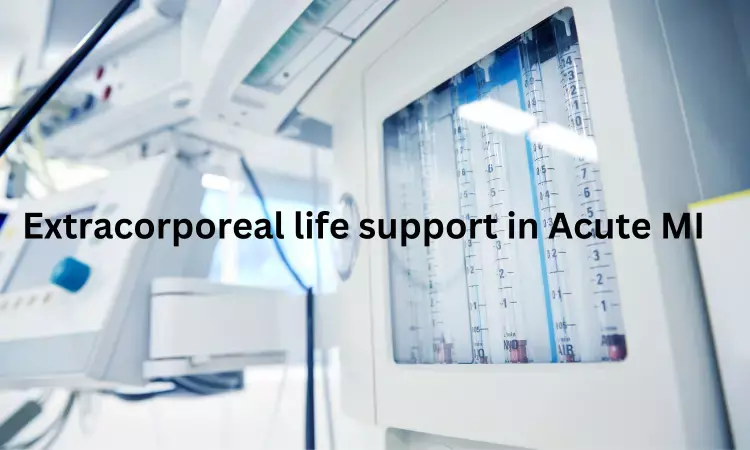- Home
- Medical news & Guidelines
- Anesthesiology
- Cardiology and CTVS
- Critical Care
- Dentistry
- Dermatology
- Diabetes and Endocrinology
- ENT
- Gastroenterology
- Medicine
- Nephrology
- Neurology
- Obstretics-Gynaecology
- Oncology
- Ophthalmology
- Orthopaedics
- Pediatrics-Neonatology
- Psychiatry
- Pulmonology
- Radiology
- Surgery
- Urology
- Laboratory Medicine
- Diet
- Nursing
- Paramedical
- Physiotherapy
- Health news
- Fact Check
- Bone Health Fact Check
- Brain Health Fact Check
- Cancer Related Fact Check
- Child Care Fact Check
- Dental and oral health fact check
- Diabetes and metabolic health fact check
- Diet and Nutrition Fact Check
- Eye and ENT Care Fact Check
- Fitness fact check
- Gut health fact check
- Heart health fact check
- Kidney health fact check
- Medical education fact check
- Men's health fact check
- Respiratory fact check
- Skin and hair care fact check
- Vaccine and Immunization fact check
- Women's health fact check
- AYUSH
- State News
- Andaman and Nicobar Islands
- Andhra Pradesh
- Arunachal Pradesh
- Assam
- Bihar
- Chandigarh
- Chattisgarh
- Dadra and Nagar Haveli
- Daman and Diu
- Delhi
- Goa
- Gujarat
- Haryana
- Himachal Pradesh
- Jammu & Kashmir
- Jharkhand
- Karnataka
- Kerala
- Ladakh
- Lakshadweep
- Madhya Pradesh
- Maharashtra
- Manipur
- Meghalaya
- Mizoram
- Nagaland
- Odisha
- Puducherry
- Punjab
- Rajasthan
- Sikkim
- Tamil Nadu
- Telangana
- Tripura
- Uttar Pradesh
- Uttrakhand
- West Bengal
- Medical Education
- Industry
No survival benefit with early ECLS in acute MI complicated by cardiogenic shock and revascularization: NEJM

Cardiogenic shock is a life-threatening condition in which heart is incapable of pumping blood. As technology advances, more doctors are likely to find themselves assessing patients for early referral, discussing various support options with relatives, directly or indirectly managing patients on extracorporeal life support (ECLS).
However ECLS lacks evidence regarding its effect on mortality, aiming to throw light on the same a team of researchers conducted a multicenter trial and revealed that ECLS had no survival benefit in patients having Acute Myocardial Infarction (MI) and revascularization, the risk of death from any cause at the 30 day follow up was not different from patients receiving medical therapy. The study is published in New England Journal Of Medicine.
The current multicenter trial included patients with acute myocardial infarction complicated by cardiogenic shock for whom early revascularization was planned were randomly assigned to receive early ECLS plus usual medical treatment (ECLS group) or usual medical treatment alone (control group). The primary outcome was death from any cause at 30 days. Safety outcomes included bleeding, stroke, and peripheral vascular complications warranting interventional or surgical therapy.
The key findings of the trial are
• A total of 420 patients underwent randomization, and 417 patients were included in final analyses.
• At 30 days, death from any cause had occurred in 100 of 209 patients (47.8%) in the ECLS group and in 102 of 208 patients (49.0%) in the control group (relative risk, 0.98; 95% confidence interval [CI], 0.80 to 1.19; P=0.81).
• The median duration of mechanical ventilation was 7 days (interquartile range, 4 to 12) in the ECLS group and 5 days (interquartile range, 3 to 9) in the control group (median difference, 1 day; 95% CI, 0 to 2).
• The safety outcome consisting of moderate or severe bleeding occurred in 23.4% of the patients in the ECLS group and in 9.6% of those in the control group (relative risk, 2.44; 95% CI, 1.50 to 3.95).
• Peripheral vascular complications warranting intervention occurred in 11.0% and 3.8%, respectively (relative risk, 2.86; 95% CI, 1.31 to 6.25).
Researchers concluded that “In patients with acute myocardial infarction complicated by cardiogenic shock with planned early revascularization, the risk of death from any cause at the 30-day follow-up was not lower among the patients who received ECLS therapy than among those who received medical therapy alone.”
Reference: Holger Thiele, M.D., Uwe Zeymer, M.D., Ibrahim Akin, M.D., Michael Behnes, M.D., Tienush Rassaf, M.D., Amir Abbas Mahabadi, M.D., Ralf Lehmann, M.D., Ingo Eitel, M.D., Tobias Graf, M.D., Tim Seidler, M.D., Andreas Schuster, M.D., Ph.D., Carsten Skurk, M.D., et al.; Extracorporeal Life Support in Infarct-Related Cardiogenic Shock; New England Journal of Medicine, 1286-1297; https://www.nejm.org/doi/full/10.1056/NEJMoa2307227.
MSc. Neuroscience
Niveditha Subramani a MSc. Neuroscience (Faculty of Medicine) graduate from University of Madras, Chennai. Ambitious in Neuro research having worked in motor diseases and neuron apoptosis is interested in more of new upcoming research and their advancement in field of medicine. She has an engrossed skill towards writing and her roles at Medical dialogue include Sr. Content writer. Her news covers new discoveries and updates in field of medicine. She can be reached at editorial@medicaldialogues.in
Dr Kamal Kant Kohli-MBBS, DTCD- a chest specialist with more than 30 years of practice and a flair for writing clinical articles, Dr Kamal Kant Kohli joined Medical Dialogues as a Chief Editor of Medical News. Besides writing articles, as an editor, he proofreads and verifies all the medical content published on Medical Dialogues including those coming from journals, studies,medical conferences,guidelines etc. Email: drkohli@medicaldialogues.in. Contact no. 011-43720751


